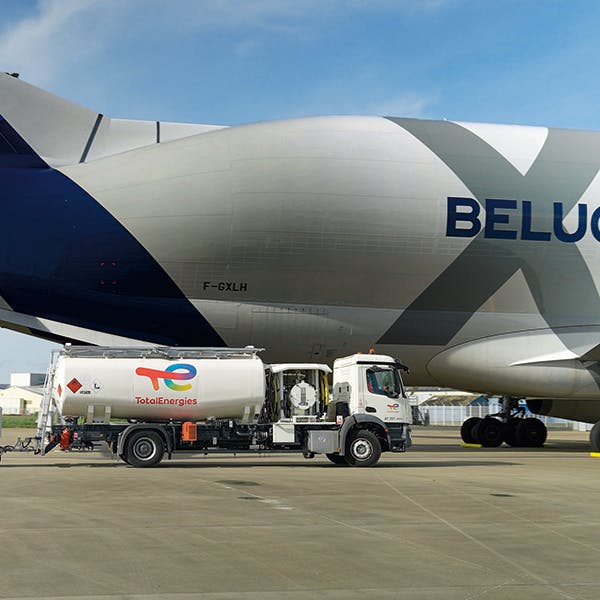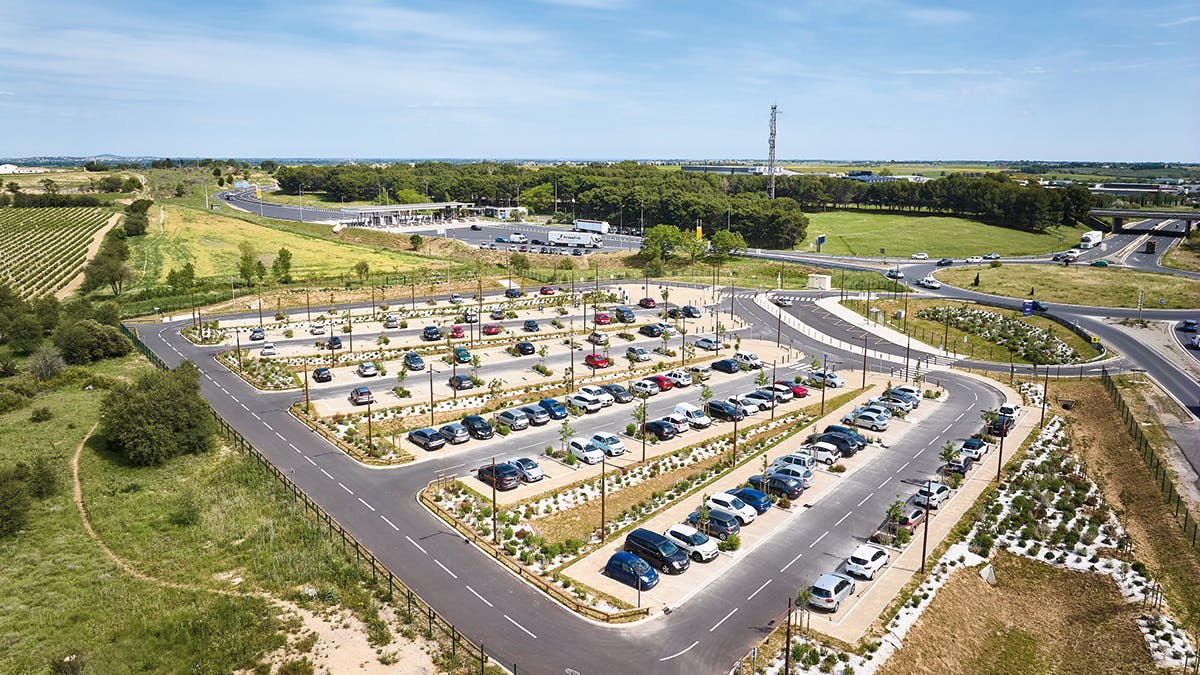

WORLDWIDE
ENCOURAGING THE DECARBONISATION OF AVIATION
By making sustainable aviation fuel (SAF) available to airlines at its sites, VINCI Airports is playing an active role in the decarbonisation of aviation. In 2021, it was the first operator to offer them at Clermont-Ferrand airport, which has a 30% distribution rate. The same applies at Saint-Nazaire Montoir, where VINCI Airports has continued to roll out the service within the network in France and beyond. In 2024, a new refuelling contract was signed with TotalEnergies to supply biofuel at Annecy airport.
8airports in the network offer SAF: Clermont-Ferrand, Annecy, Saint-Nazaire Montoir, Toulon Hyères, Budapest, Faro, Porto and Lisbon

EUROPE
TAKING ACTION TO TACKLE AIRPORTS’ SCOPE 3 EMISSIONS
In 2024, VINCI Airports was chosen to roll out the major European project, APU-OFF. It is part of the EU’s Fit for 55 package, which aims to reduce greenhouse gas emissions within the EU by 55% in 2030 compared to the 1990 baseline. The Auxiliary Power Unit (APU) is a kerosene-powered turbine used to provide energy to aircraft when they are on the ground. Using decarbonised electricity to provide this energy instead would make it possible to bring the aircraft’s main engine to a complete halt and avoid using kerosene, a high emitter of CO2. Between now and 2026, VINCI Airports will therefore invest €200 million (with support from the European Union, the European Investment Bank and Banque des Territoires) to install APU-OFF equipment at its airports in Lyon and Nantes in France and in Portugal, before incorporating it as standard in all its new infrastructure projects.


FRANCE
DEVELOPING SHARED MOBILITY
According to VINCI Autoroutes’ sixth study on single-occupancy vehicle use, which measured occupation data for vehicles travelling on highways around 13 French cities, almost 86% of drivers are alone in their car on their daily journeys. This is the highest rate since the launch of the study, working out at an average of 1.22 people per vehicle. Reaching 1.75 people per vehicle on average by 2030, the target set by the National Low Carbon Strategy, will therefore require significantly increasing the number of people car-sharing. VINCI Autoroutes is contributing to the movement by developing free car-sharing parking facilities at the entrances and exits of its network. Six new car parks opened in 2024 and around 20 more will be created in partnership with local authorities over the next few years as part of the national Highway Investment Plan.
59car-sharing parking facilities in service in late 2024 in the VINCI Autoroutes network
